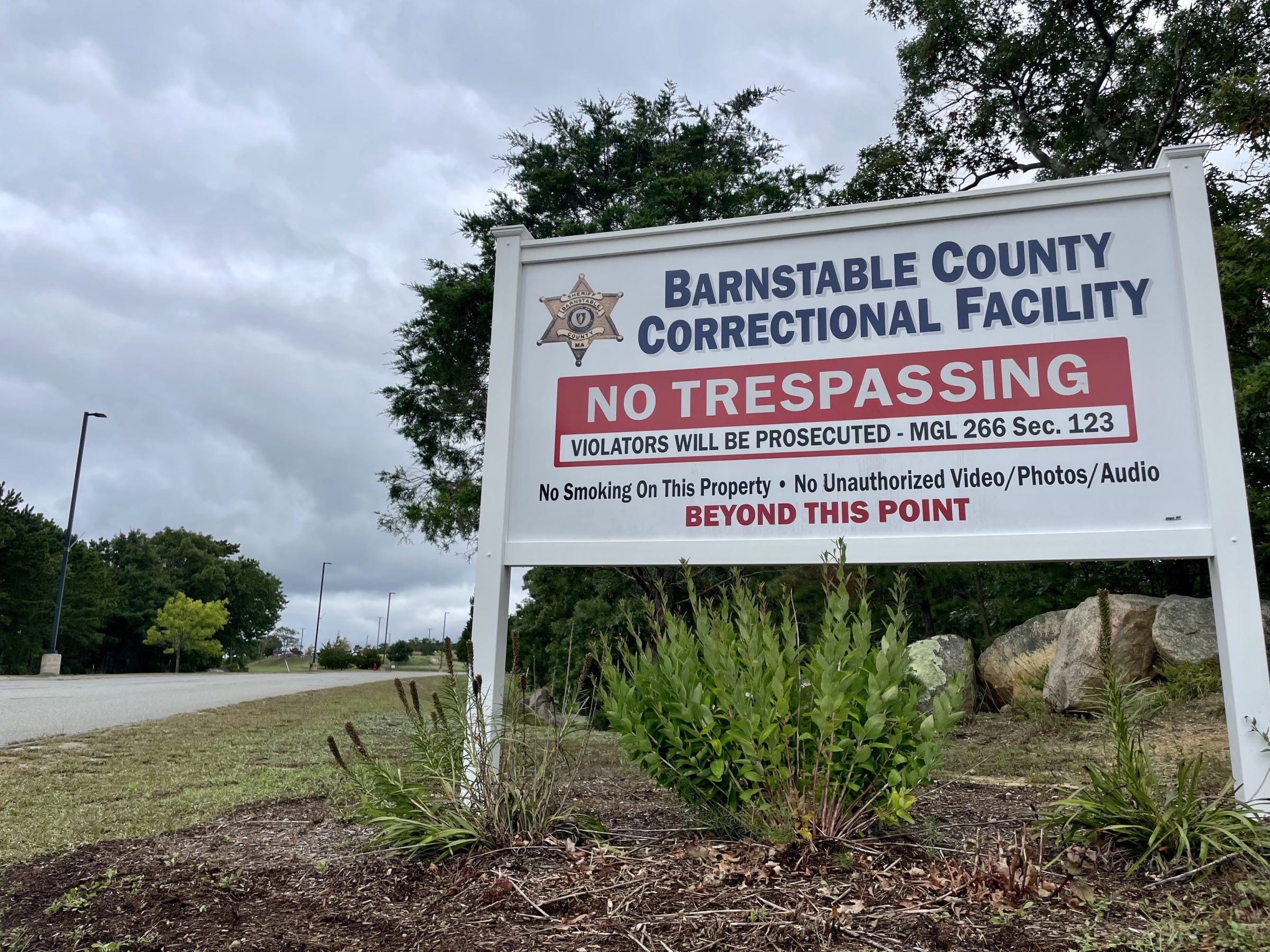Immigration Hardliners Lose Sheriff Races in Massachusetts and Beyond
Massachusetts also voted to provide driver’s licenses to undocumented immigrants, while some notoriously ICE-friendly sheriffs are ahead in more rural areas.
| November 11, 2022

Undocumented immigrants face fear and uncertainty on Massachusetts roadways, says immigrant defense attorney Lorrayne Reiter. They are barred from obtaining driver’s licenses, and in some areas local law enforcement works closely with federal immigration authorities. “They don’t feel safe while driving. They think the police are going to stop them and, based on their status, they’ll treat them differently,” she told Bolts this week.
But the tide turned on Tuesday, as Massachusetts voters approved giving people in the state driver’s licenses regardless of their immigration status. The referendum followed the adoption of a law earlier this year that expanded access to licenses; Republicans petitioned a veto referendum onto the ballot, and voters blessed the law this week.
“People are going to feel safer going on the roads, doing what Americans do—go to a doctor appointment, take children to school,” Reiter said. She works at the Brazilian Worker Center of Boston, an immigrants’ rights group that helped spearhead the Yes campaign.
The state’s immigrant advocates also cheered landmark wins this week in two counties where sheriff’s offices have long worked closely with Immigration and Customs Enforcement (ICE) to identify and detain immigrants. Under such local arrangements, minor interactions, like traffic stops, can escalate into detainment and even deportation.
Barnstable County, home to Cape Cod, stood out as the only county in New England to contract into ICE’s 287(g) program, which enables sheriff’s deputies to act like federal immigration agents. But voters on Tuesday elected a new sheriff who promises to “rip up” the county’s contract to cooperate with federal immigration enforcement.
“The sheriff’s office should not be doing ICE’s job,” Democratic nominee Donna Buckley, who will replace a retiring, 23-year Republican sheriff, told Bolts in September. Her GOP opponent favored maintaining the county’s contract with ICE.

In neighboring Bristol County, voters ousted Thomas Hodgson, a far-right sheriff with a history of draconian anti-immigrant policies. In 2017, Hodgson famously offered to send people detained in his custody to the U.S.-Mexico border to help build former President Donald Trump’s wall, and last year the federal government shut down his county’s immigrant detention facility over alleged civil rights violations.
Each of these changes was driven by on-the-ground organizing by immigrants’ rights activists in a state that tilts heavily Democratic but hasn’t always embraced immigrants in policy-making. Local groups like Bristol County for Correctional Justice and the Cape Cod Coalition for Safe Communities mounted active campaigns to educate voters in their counties about the stakes of these local elections.
Elsewhere in the country, two GOP candidates with a history of championing harsher immigration enforcement failed to seize sheriff’s offices.
In Doña Ana County, a border county in New Mexico that is home to Las Cruces, Democratic Sheriff Kim Stewart easily prevailed over a Republican challenger who was advocating for a tighter relationship with federal agents.
In Wake County (Raleigh), North Carolina, longtime sheriff Donnie Harrison failed in his comeback effort and lost to Democrat Willie Rowe. While in office, Harrison joined the 287(g) program and frequently demonized immigrants. He was ousted from office in 2018, alongside many other Republican sheriffs known for contracting with ICE who lost their reelection bids in North Carolina that year.
During his campaign, Harrison abruptly changed his stance on collaborating with ICE. When asked by Bolts in August about his public desire for Wake to rejoin 287(g), which his Democratic successor had quickly terminated, Harrison said he no longer wanted to. Advocates took his flip as a sign that protecting immigrants remains a potent issue.
Felicia Arriaga, a sociology professor at Appalachian State University, in western North Carolina, has compiled data showing that Harrison’s policies as sheriff contributed to hundreds of deportation a year; she says Harrison’s change this year was an electoralist effort to woo the center, and that his loss was met with relief by local organizers. Other North Carolina counties like Durham and Mecklenburg reelected Democratic sheriffs who came into office in 2018 and promptly limited ties with ICE.
North Carolina Republicans also failed to win veto-proof majorities in their legislature; that is likely to keep legislation they have championed to force sheriffs to work with ICE at bay for two more years, since the Democratic governor opposes it.
But at least one of the nation’s notorious anti-immigrant sheriffs survived on Tuesday in a more rural area. In Alamance, a North Carolina county roughly one hour west of Wake County, GOP Sheriff Terry Johnson won another term. He has faced federal accusations over racial profiling and for detaining immigrants in abusive conditions, and he reportedly once directed his deputies to discriminate against people who “appeared” to be Mexican, telling staff to “go out there and get me some taco-eaters.”
In Frederick County, Maryland, another mostly rural but rapidly-diversifying county north of D.C. Republican Sheriff Chuck Jenkins has a hefty lead as of publication, though many mail-in ballots, which lean heavily Democratic, remain to be counted. Jenkins has been under national scrutiny for policies that have ramped up fear among immigrants even as the county rapidly diversified under his tenure. Besides his connections to prominent national politicians and far-right groups, Jenkins has been a longstanding member of the 287(g) program and has been successfully sued over racial profiling in traffic stops.
“As an immigrant, you never really felt safe,” local resident Jesus Santiago told Bolts in September. He was once arrested in Frederick County over driving with a suspended license and then transferred into immigration detention; he was later shielded by former President Barack Obama’s Deferred Action for Childhood Arrivals (DACA) program.
Democrats on Tuesday gained full control of the state government in Maryland for the first time in eight years and may look to pass more protections for immigrant residents. In recent years, they already passed bills curtailing local cooperation with ICE with enough votes to override the vetoes of outgoing Republican Governor Larry Hogan.
“With the way Congress is, a lot of people are very focused on what they can do in their own states right now to try to improve the situation,” Sarang Sakhavat, political director at the Massachusetts Immigrant and Refugee Advocacy Coalition, told Bolts. “With Congress, we don’t really expect them to be changing much of anything.”
In Massachusetts, where Democrats also flipped the governorship and grabbed control of the government, advocates have been frustrated at the Democratic legislature’s failure to pass a bill limiting immigration enforcement; known as the Safe Communities Act, the reform was opposed by outgoing Republican Governor Charlie Baker.
Massachusetts organizers who worked on various immigrant-rights campaigns this year also focused on making a public-safety argument.
The coalition that supported the Massachusetts driver’s license measure called itself “Yes on 4 For Safer Roads,” making the case that everyone is less safe when people are denied licenses because more driverspeople are uninsured. Similarly, opponents of county-level ICE partnerships are telling voters that communities are less safe if certain populations are disincentivized to interact with police and the legal system in general.
Working with ICE “doesn’t improve safety in any measurable way, and if anything it’s detrimental because it scares witnesses and victims away,” Sakhavat said.
Daniel Nichanian contributed to the reporting for this article.

